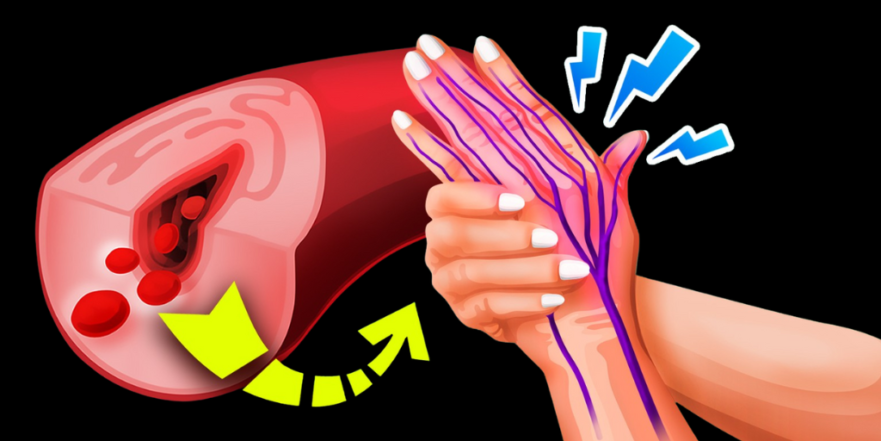
Are you constantly feeling drained, no matter how much you sleep? Do you struggle with brain fog, forgetfulness, or strange sensations like pins and needles? You might chalk it up to stress, aging, or just a busy life. But what if the root cause is a simple, yet critical, nutrient deficiency? I’m talking about Vitamin B12, a powerhouse nutrient essential for the health of your nerves, the formation of your red blood cells, and the very function of your brain. A deficiency in this vitamin, also known as cobalamin, is surprisingly common, affecting millions of people. Because the body can store B12 for years, a deficiency can creep up on you slowly, with subtle symptoms that are often dismissed or misdiagnosed. This article will walk you through 15 of the most common—and often overlooked—signs that you might be running low on this vital nutrient.
📌Key Takeaways
- What is Vitamin B12? A crucial nutrient for healthy nerve tissue, brain function, and the production of red blood cells and DNA.
- Why Deficiency Happens: It’s most common in those following a vegan or vegetarian diet, older adults, and individuals with digestive issues that impair nutrient absorption.
- Common Symptoms: The signs are often neurological (like pins and needles or memory issues) or related to anemia (like fatigue and pale skin).
- What to Do: If you recognize several of these symptoms, it’s important to consult a healthcare professional who can confirm a deficiency with a simple blood test.
➡️15. Pervasive Fatigue

This isn’t just feeling a little tired after a long day. We’re talking about a deep, persistent exhaustion that doesn’t go away, even with a full eight hours of sleep. If you find yourself needing a nap just to get through the afternoon or feeling chronically lethargic, it could be a major red flag. Vitamin B12 is a key player in energy production. More specifically, your body needs it to make red blood cells, which are responsible for carrying oxygen to every single part of your body. When your B12 levels are too low, your red blood cell count can drop, leading to a condition called megaloblastic anemia. With fewer red blood cells to transport oxygen, your tissues and organs don’t get the fuel they need to function optimally, resulting in that profound sense of fatigue.
➡️14. Loss of Muscle Strength

Do you find your muscles feeling unusually weak or that carrying your groceries feels like a Herculean task? This isn’t necessarily about a lack of exercise. Just as a B12 deficiency starves your body of energy, it also starves your muscles of oxygen. Without adequate oxygen, your muscle cells can’t perform efficiently, leading to a noticeable decrease in strength and endurance. If you can’t trace your muscle weakness to a recent intense workout or illness, it’s worth considering if a nutrient deficiency is the underlying culprit.
➡️13. Persistent Pins and Needles

Have you ever experienced that strange, tingling sensation when your foot falls asleep? Now, imagine feeling that—or a sensation of electrical zaps—for no apparent reason in your hands, feet, or other parts of your body. This symptom, known as paresthesia, is a classic neurological sign of a B12 deficiency. Vitamin B12 is vital for maintaining the health of the myelin sheath, a protective fatty layer that insulates your nerves. Without enough B12, this sheath can begin to degrade, leading to nerve damage. This damage disrupts the normal signaling between your brain and your body, causing these bizarre and uncomfortable sensations.
➡️12. Forgetfulness and Brain Fog

We all misplace our keys from time to time. But if you’re experiencing a level of forgetfulness that feels abnormal for you, or if you’re struggling with a persistent “brain fog” that makes it hard to concentrate, a B12 deficiency could be to blame. The brain is an oxygen-hungry organ, and the same lack of oxygen-rich red blood cells that causes fatigue can also impair cognitive function. This can manifest as difficulty finding the right words, short-term memory problems, and a general feeling of mental cloudiness. In older adults, these symptoms are sometimes tragically mistaken for early signs of dementia, when in reality, they could be reversible with B12 supplementation.
➡️11. Pale or Jaundiced Skin

If people are commenting that you look unusually pale, despite getting some sun, take a closer look. A lack of B12 can give your skin an ashen or pale appearance. This is due to the shortage of healthy red blood cells, which give your skin its rosy, healthy glow. In some cases, the skin can also take on a yellowish hue. This is called jaundice, and it happens when the fragile, misshapen red blood cells produced during a B12 deficiency break down too easily. This breakdown releases a yellow pigment called bilirubin, which can build up and cause your skin and the whites of your eyes to turn yellow.
➡️10. Dizziness and Vertigo

Feeling lightheaded or dizzy, especially when you stand up too quickly or walk up a flight of stairs, can be another subtle sign. While dizziness can be attributed to many things, it shouldn’t be dismissed. In the context of a B12 deficiency, these dizzy spells are often linked to the anemia it causes. Your brain isn’t getting the steady supply of oxygen it needs to maintain your sense of balance, leading to these fleeting but unsettling moments of instability. It’s a symptom that is frequently overlooked, particularly in the elderly, where it might be blamed on other age-related issues.
➡️9. Increased Anxiety or Depression

Your mental health is deeply connected to your physical health. Vitamin B12 plays a critical role in synthesizing brain chemicals like serotonin and dopamine, which regulate your mood. When B12 levels are low, it can disrupt this delicate chemical balance, potentially leading to or worsening feelings of anxiety, irritability, and even depression. If you’re experiencing mood changes that seem to have no clear external cause or that don’t resolve, it’s a good idea to investigate potential physiological factors, including a vitamin deficiency.
➡️8. A Sore, Smooth, Red Tongue

Take a look at your tongue in the mirror. A healthy tongue is covered in tiny bumps called papillae, which house your taste buds. In a B12 deficiency, you might notice that your tongue becomes sore, red, and swollen, a condition known as glossitis. The papillae can seem to disappear, giving the tongue an unnaturally smooth surface. You might also experience a burning sensation or changes in how food tastes. This is a direct physical manifestation of the deficiency’s effect on cell turnover and health.

